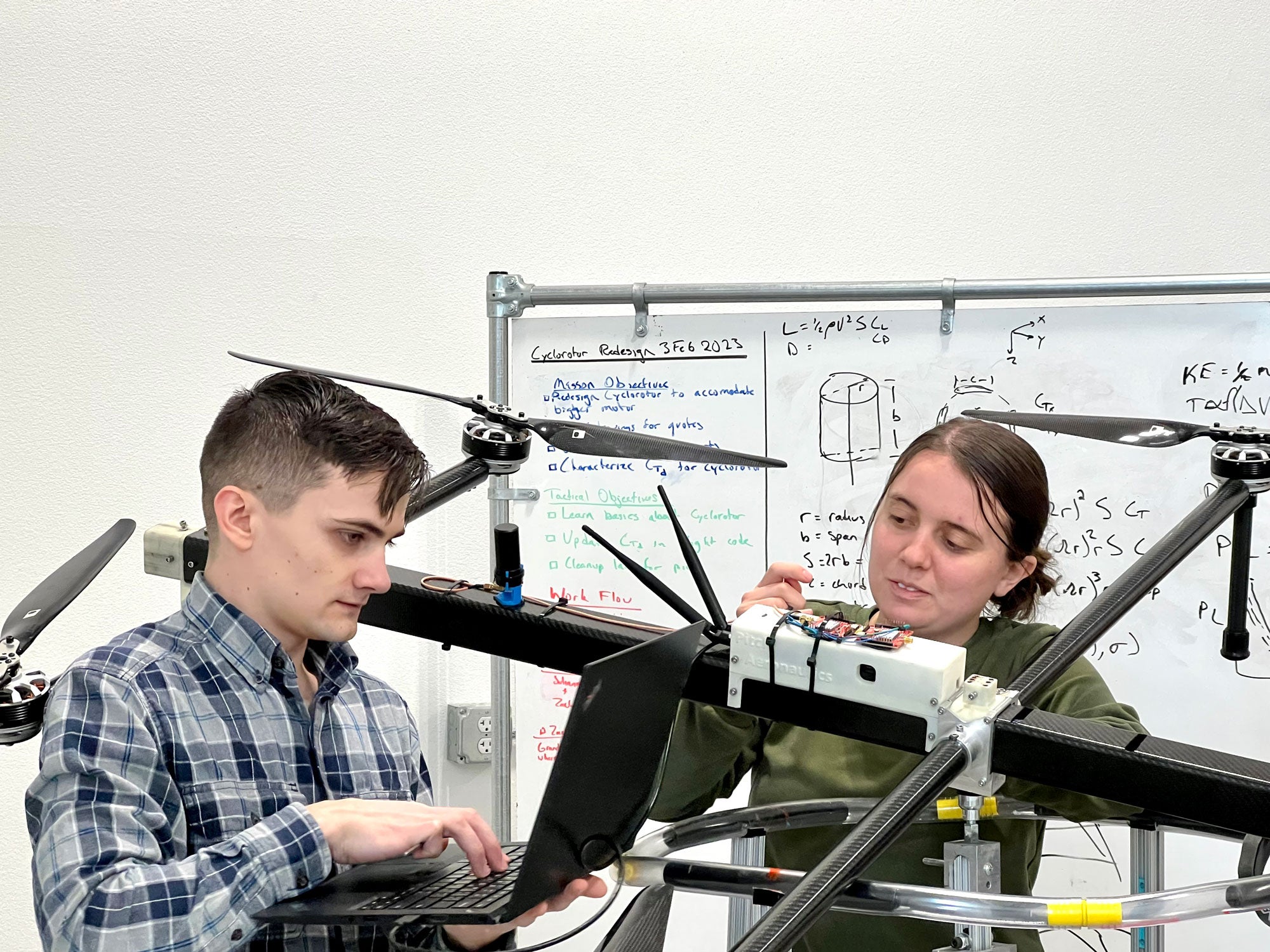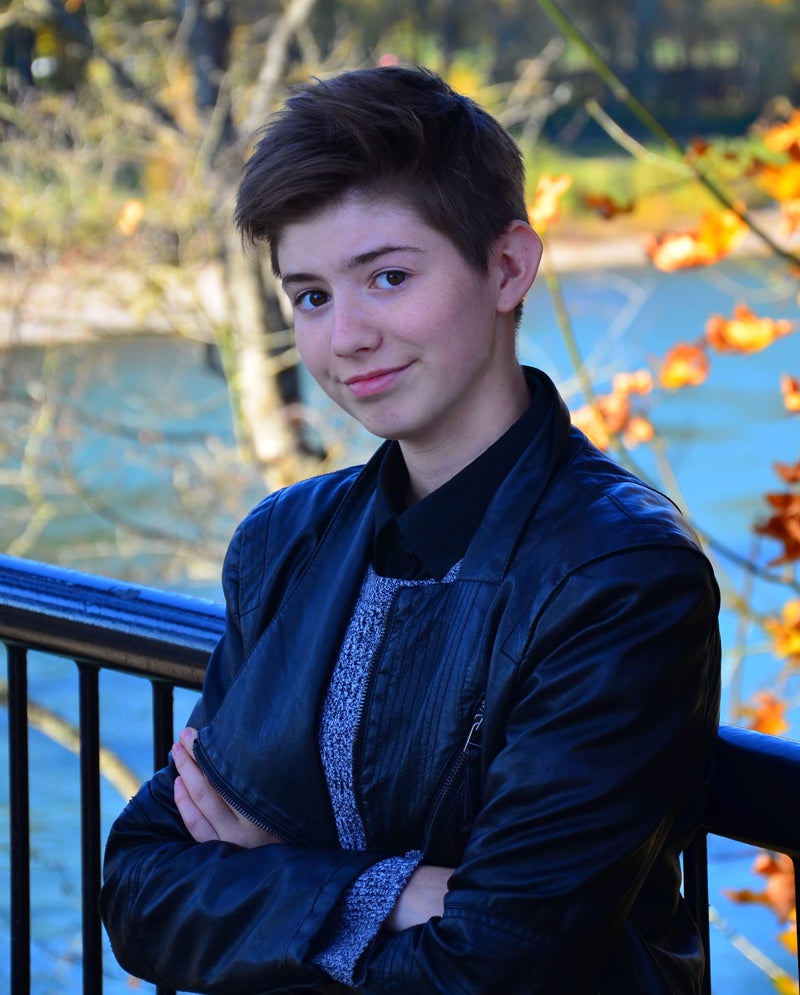
Engineering is all about finding solutions to current needs. Pitch Aeronautics, a Boise, Idaho-based startup company, is answering the need for safety in professional maintenance. Alongside the team, Boise State graduate student Alex Peterson, who plans to graduate in 2024, (’21, ’24) and alum Julianna Buzzard (’22) are rising to the challenge. Peterson and Buzzard now work for Pitch Aeronautics, but they got their start with the firm through their engineering capstone projects followed by an internship — experiences they said were essential to their careers.
“Having textbook knowledge is important,” Buzzard said, “but being able to work with people in the field and with the actual material, that’s something you can’t get in the classroom.”Julianna Buzzard
Buzzard and Peterson are currently helping design Pitch’s patented drone, the Astria. Named after the Greek goddess of precision, the Astria measures 9 feet by 6 feet and is equipped with state-of-the-art technology. Despite its size, its cyclorotor and sensory systems make it accurate and nimble, making maintenance tasks easier.
“We named it the Astria because its main feature is the cyclorotor, which enables it to have very fine lateral movements, and allows it to be more precise in touch-based inspection,” Peterson said.
The drone can perform touch-based tasks examining and repairing infrastructure, like the installation of bird diverters on powerlines, and delamination and crack maintenance on bridges. This is dangerous work for humans, but ideal for the Astria. Bird diverters, for example, devices that protect birds from collisions with electrical lines, require human workers to hang out of helicopters next to high-voltage wires during direct maintenance. The Astria makes these tasks more efficient and safe — to “keep people off of ropes, ladders and towers,” Buzzard said, speaking to the company’s informal slogan.
Buzzard and Peterson’s internships gave them hands-on experience that supplemented their education and their careers. Further, it’s provided them with the opportunity to have input on multiple elements of the drone’s design, like its electrical and flight controls. Projects like these have fine-tuned their skills and interests in the field.
Confident in her capabilities and her future, Buzzard, who is a 2023 Top Ten Scholar, wants to widen her expertise, setting her sights on a degree in aeronautical engineering alongside her Bachelor’s in Mechanical Engineering. Meanwhile, with a teaching assistantship funding his graduate research, Peterson spends much of his time in Boise State’s robotics lab pursuing his Master of Science in Mechanical Engineering.
Rising engineers like them to enter the field with the benefit of fresh education, meeting modern technology with new approaches. Pitch Aeronautics is in the process of improving the newest model of their drone and continues to enlist the help of Boise State.
“University research advances commercial technology by producing engineers and scientists with cutting-edge ideas,” Zach Adams said, CEO and co-founder of Pitch. “Boise State instills future engineers with a spirit of innovation and creative collaboration. Pitch is honored to work with faculty and students.”Zach Adams
Support future Boise State alumni.
About the Author

Lily Tindle-Hardy is a student communications specialist/writer within University Advancement. Lily is a junior studying English, and she recently transferred to Boise State after earning an associate of arts from Chemeketa Community College in Salem, Ore. She assists the UA Comms team with writing projects, including donor stories, and capturing the student’s “voice” in impact features.